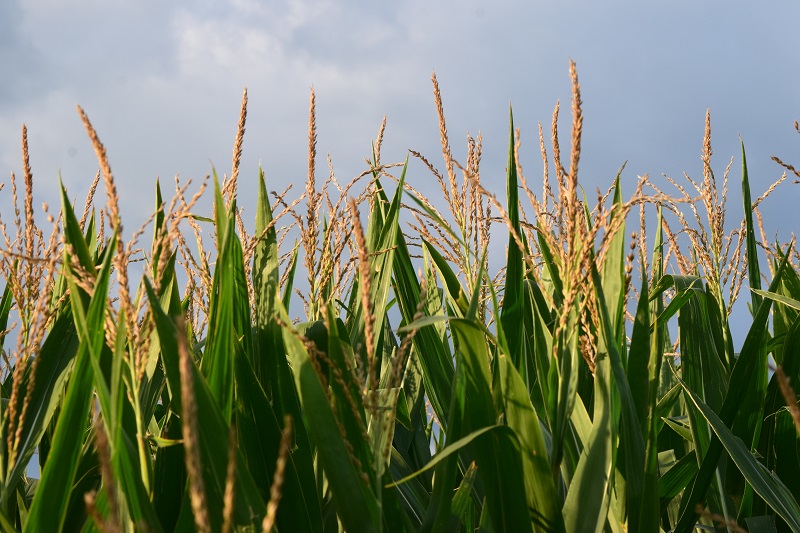Fulfilling Your Dreams
My First Job – Detasseling Corn in Kansas
by Kiesa Kay
We got into the wagons before dawn, and one man always started chanting, “All I want to say is Weinie My Suck. All I want to say is Weinie My Suck.”
I was 15 years old, and I couldn’t understand why he had such a fascination with hot dogs. As the sun rose, we all tumbled from the wagon and started walking into the field. I was smaller than almost everybody, at five foot two and less than 100 pounds, so I had to reach up and tug the cornstalks down one by one in order to pull out the tassels at their centers. Each person got assigned a row, and the work began. Step, reach, tug, pull, release. Step, reach, tug, pull, release. On and on it went.
We all wore long sleeves and long pants, because corn leaves can cut deeply. We wore gloves. Even in early morning, the air would feel thick and sticky. We had floppy cotton hats to protect against the noonday sun. At noon, we’d take a break to eat lunch – peanut butter and jelly on white bread for me, with lemon water. I grew up by a lake, and we got water straight from that source. I learned the first day on the job that if I didn’t put lemon in the water, green things would be growing in it by the time lunchtime rolled around.
Then back we went to the cornstalks – step, reach, tug, pull, release. By late afternoon, usually 3 p.m., we would get hauled back to the parking area, driven home by a young man named Danny. We all were quiet on the way back from the fields. Even the Weinie My Suck guy was too tired to talk. As soon as I got to my house, I didn’t stop. I threw my hat to the ground, pulled off my gloves, kicked off my shoes, stumbled to the lake and flopped into the water, fully clothed, for the blessed relief from that oppressive heat. I felt my muscles relax in the soothing water of Gardner Lake. I floated until the scent of the field had left my nostrils and the dirt of the field had soaked off my skin. I went to bed early, and then in the morning, I got up before the sun rose and did it all over again.
Sometimes I wondered what it would be like to be one of the girls who went to camp for the summer, or visited relatives, or went on vacations. My parents didn’t have big money, and after I turned 13, they paid for underwear and coats, and the rest of my clothes had to come from my own wages. Every time a box of hand-me-downs arrived from the St. Louis cousins, I gave thanks. Detasseling corn didn’t pay much, but it paid better than babysitting. Farm workers got $2.20 an hour. Every day I worked, I made seventeen dollars and sixty cents, and I was saving for college. None of the women in my family ever had graduated from college.
Some days were rougher than others, especially when we got put on the corn detasseling machines. One man drove a tractor, and on each side of it hung long metal rods that had four or five metal buckets dangling. Each bucket contained two workers, and as the tractor made its way through the field, we pulled tassels as fast as we could to keep up with the pace. Pull, pull, pull, pull, pull. If we didn’t get the corn detasseled, that field couldn’t be used for food, and had to be fed to animals. Our work made a big difference in the price a farmer could get for his corn. The machines came along later in the season, when we had many fields and needed to work very fast.
I especially remember Andrews Farm, because we did that whole place on those machines. My hands ached at the end of every day, and my feet, and every muscle. I went home and leaped into the lake until I felt better.
Workers started quitting, but I never quit. Even when a brother and sister had a fight next to me in the corn field, and the sister fell backward and landed on me, putting a deep cut in my eyebrow from my steel-framed glasses, I just patched up my face and kept going. I needed the money. No one could afford to pay my way.
Decades have passed since that first job, and last year I went to find the fields where I’d toiled so long in the sun. They were gone. Even Andrews Farm had been sold to make way for housing developments.
The summer day had grown hot and sultry. I left the remnants of the cornfield. I went back to Gardner Lake and went swimming. As I floated, I gave deep thanks to the me I used to be.
“We did it, Little One,” I whispered across the waves of time. “I have clean clothes, and a college education. We did it. Thank you.”
And deep down, I felt that she had heard me. I felt as if I had folded time, and sent back strength. Appreciation washed over me for that courageous 15-year-old girl, so determined to do whatever it took to earn enough money to find her way out of there.
About the Author
Kiesa Kay, poet and playwright, grew up in Gardner, Kansas. Her plays have been performed in five states, and she wrote her memoir, Tornado Alley, in a cottage she once owned in France. Now she writes and fiddles in a cabin on an acre of woods with a view of the Blue Ridge Mountains.





